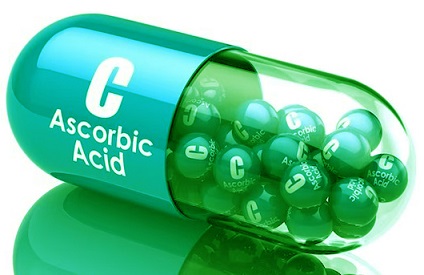Nikhil Prasad Fact checked by:Thailand Medical Newsw Team Oct 06, 2024 6 months, 2 weeks, 6 days, 19 hours, 55 minutes ago
Medical News: The COVID-19 pandemic has led researchers across the world to explore various treatments that could potentially help reduce the severity of the disease. One such potential treatment is Vitamin C. This essential nutrient, commonly used to boost the immune system, has been investigated for its effects on patients hospitalized with COVID-19. A recent study explored whether Vitamin C could lower the risk of in-hospital death and shorten the length of time spent in the Intensive Care Unit (ICU). This
Medical News report delves into the findings of this comprehensive study, which involved multiple trials across different countries and patients, shedding light on the true impact of Vitamin C supplementation on COVID-19 outcomes.
 Does Vitamin C Help in the Fight Against COVID-19?
Why Vitamin C?
Does Vitamin C Help in the Fight Against COVID-19?
Why Vitamin C?
Since the beginning of the pandemic, many medical professionals and researchers have been interested in Vitamin C due to its immune-boosting properties. Vitamin C has long been used to help fight off infections and promote healing. With the global crisis brought on by COVID-19, some researchers speculated that it might also help improve outcomes for COVID-19 patients. The study focuses on the outcomes of patients who were given Vitamin C as part of their treatment compared to those who were not. These outcomes included mortality rates, the length of ICU stays, and any adverse events experienced by the patients.
The Study Setup
Researchers from various institutions, including the Center for Evidence-Based Medicine at Chengdu University, West China Hospital, conducted a systematic review and meta-analysis of studies that focused on the effects of Vitamin C supplementation in COVID-19 patients. The research team searched multiple databases, including PubMed and Cochrane Central, for randomized controlled trials (RCTs) that compared Vitamin C supplementation with standard treatments. After a thorough review, they included 11 clinical trials in their analysis, encompassing thousands of patients from different countries.
These studies focused on hospitalized patients diagnosed with COVID-19 and primarily aimed to evaluate whether Vitamin C could reduce the risk of death during hospital stays. Secondary outcomes, such as the length of time patients spent in the ICU or in the hospital, were also examined.
Key Findings: Mortality and ICU Stay
One of the primary outcomes examined was the in-hospital mortality rate among COVID-19 patients who received Vitamin C supplementation. However, after reviewing the results from the 11 clinical trials, the researchers concluded that Vitamin C did not significantly reduce the risk of death. The mortality rate for patients who received Vitamin C was not much different from those who received standard treatments without the vitamin.
Additionally, the length of time spent in the ICU was analyzed. The study found that patients who were given Vitamin C did not experience shorter ICU stays compared to those who received standard care. This finding was consistent across most of the trials included in the analysis. Ther
e was no significant difference in the length of hospital stay either, indicating that Vitamin C does not appear to speed up recovery time for COVID-19 patients.
No Major Differences in Adverse Events
Another important aspect of this study was the assessment of adverse events. Adverse events refer to negative side effects or complications that may arise during treatment. The researchers found that there was no major difference in adverse events between the patients who received Vitamin C and those who did not. Both groups experienced similar rates of complications, indicating that Vitamin C supplementation is generally safe for patients with COVID-19, though it did not offer additional benefits in terms of reducing complications or adverse outcomes.
Limitations of the Study
While the study provided valuable insights into the effects of Vitamin C on COVID-19 patients, there were some limitations. The sample size of some trials was relatively small, and the overall number of studies available for analysis was limited. This could affect the strength and generalizability of the conclusions. Additionally, the dosage and duration of Vitamin C treatment varied across the studies, which could have influenced the results.
It's also worth noting that COVID-19 treatment standards have evolved over time as more has been learned about the disease. This variation in treatment practices across different countries and hospitals may have influenced the outcomes of the trials, making it harder to draw firm conclusions about the effectiveness of Vitamin C in isolation.
Conclusion
The study findings provide a clear perspective on the role of Vitamin C in treating COVID-19 patients. Based on the findings, Vitamin C supplementation does not significantly reduce in-hospital mortality rates or shorten the length of ICU stays for patients with COVID-19. While the vitamin remains a safe supplement for these patients, it does not appear to provide the additional benefits that many had hoped for at the beginning of the pandemic.
The study's conclusions are based on the best available evidence from randomized controlled trials, the gold standard in medical research. However, due to the limitations of the study, including the small sample sizes and variability in treatment protocols, further research is needed. Future studies should focus on larger patient groups and standardized treatment protocols to provide more definitive answers about the role of Vitamin C in COVID-19 treatment.
The study findings were published in the peer-reviewed journal: Frontiers in Nutrition.
https://www.frontiersin.org/journals/nutrition/articles/10.3389/fnut.2024.1465670/full
For the latest COVID-19 News, keep on logging to Thailand
Medical News.
Read Also:
https://www.thailandmedical.news/news/study-finds-that-traditional-chinese-medicine-lianhua-qingwen-enhances-immunity-against-omicron-variants
https://www.thailandmedical.news/news/potential-of-pteris-medicinal-plants-in-combatting-covid-19-and-other-viral-diseases
https://www.thailandmedical.news/news/flavonoid-glycosides-from-the-herb-viola-stocksii-shows-promising-therapeutic-properties-against-sars-cov-2-variants
https://www.thailandmedical.news/articles/herbs-and-phytochemicals
https://www.thailandmedical.news/articles/covid-19-herbs
